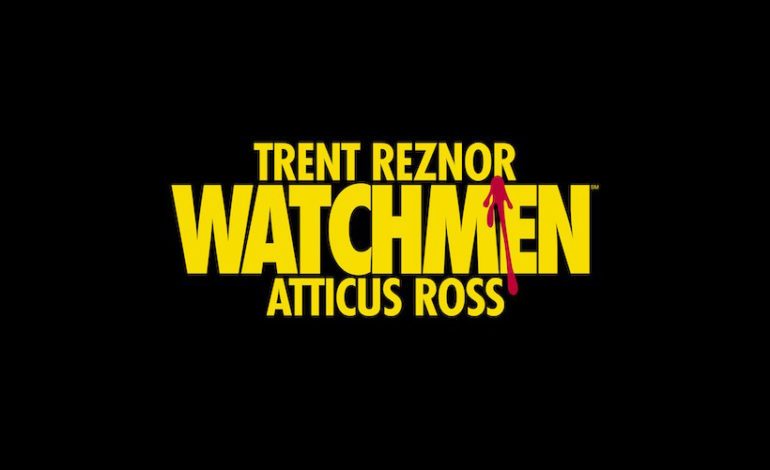

Maintaining identity amid genre-crossing
Trent Reznor and Atticus Ross, both core members of long-standing Nine Inch Nails, prove that despite their decently prolific output spanning industrial rock albums and original scores, the pair is far from jaded, and certainly far from finished. Following their previous work on numerous films, including their Grammy award-winning original score for “The Girl With the Dragon Tattoo” (2011) and Academy Award-winning original score for “The Social Network” (2010), The Watchmen Score II reminds audiences of what Reznor and Ross have done, and continue to do so successfully. The pair conjures up a truly unique sonic world that is instantly evocative, in which the phrase “less is more” is effectively a governing tenet.
Watchmen II epitomizes the truth that there is merit in utilizing only the necessities. Yet that certainly isn’t to say that consequently, there exists a lack of creativity or innovation. Rather, by altering textures and inviting minimalistic repetition, Reznor and Ross demonstrate the ability to see beyond the music itself; they write not simply for complexity or musicality, but for functionality within the greater visual context. Doing what few others could, the pair composes with a certain confidence and assurance that is apparent in the way they create motion and manipulate chords and timbres, proving a compositional mastery and awareness of the ability to cultivate tension that inherently exists in sound. Under this approach, the pair’s writing is sleek and understated, and it undoubtedly is effective in enhancing mood, inciting anticipation and encouraging plot flow. Without the need for overt suggestion and exaggerated correspondence with the visuals, Reznor and Ross afford themselves greater room for other more unique elements, such as the varying musical textures they bring into play. Dotted with jazz interludes, such as “Dreamland Jazz” and “Nostalgia Blues,” and commenced with a playful piano caricature, “Trust in the Law,” the LP provides an encompassing view into the Watchmen series and its various settings but also stands as a substantially interesting listen as a singular album alone.
Ominous pedal tones, or singular, foundational notes that are sustained, provide support for the signature rhythmic pulsation that flows through tracks, including “Seven Years of Bad Luck” and “He Was Never Here.” Especially apparent on such tracks is the phenomenon listeners witness on this project—that the pair’s signature style, preferences and techniques largely remain unwavering despite successfully crossing genres and mediums. Reznor and Ross’s film score output is unmistakably the product of the same Reznor and Ross that are Nine Inch Nails. Their work with “The Watchmen” series certainly bears resemblance to their more recent releases under the Nine Inch Nails moniker. 2018’s Bad Witch is easily along the same creative vein and confirms a skillful ability to retain their artistic and creative identity so well. The second volume in “The Watchmen” trilogy by Trent Reznor and Atticus Ross, Watchmen II assures audiences that there is still much to look forward to upon release of the project’s third installment and future original scores to come.
